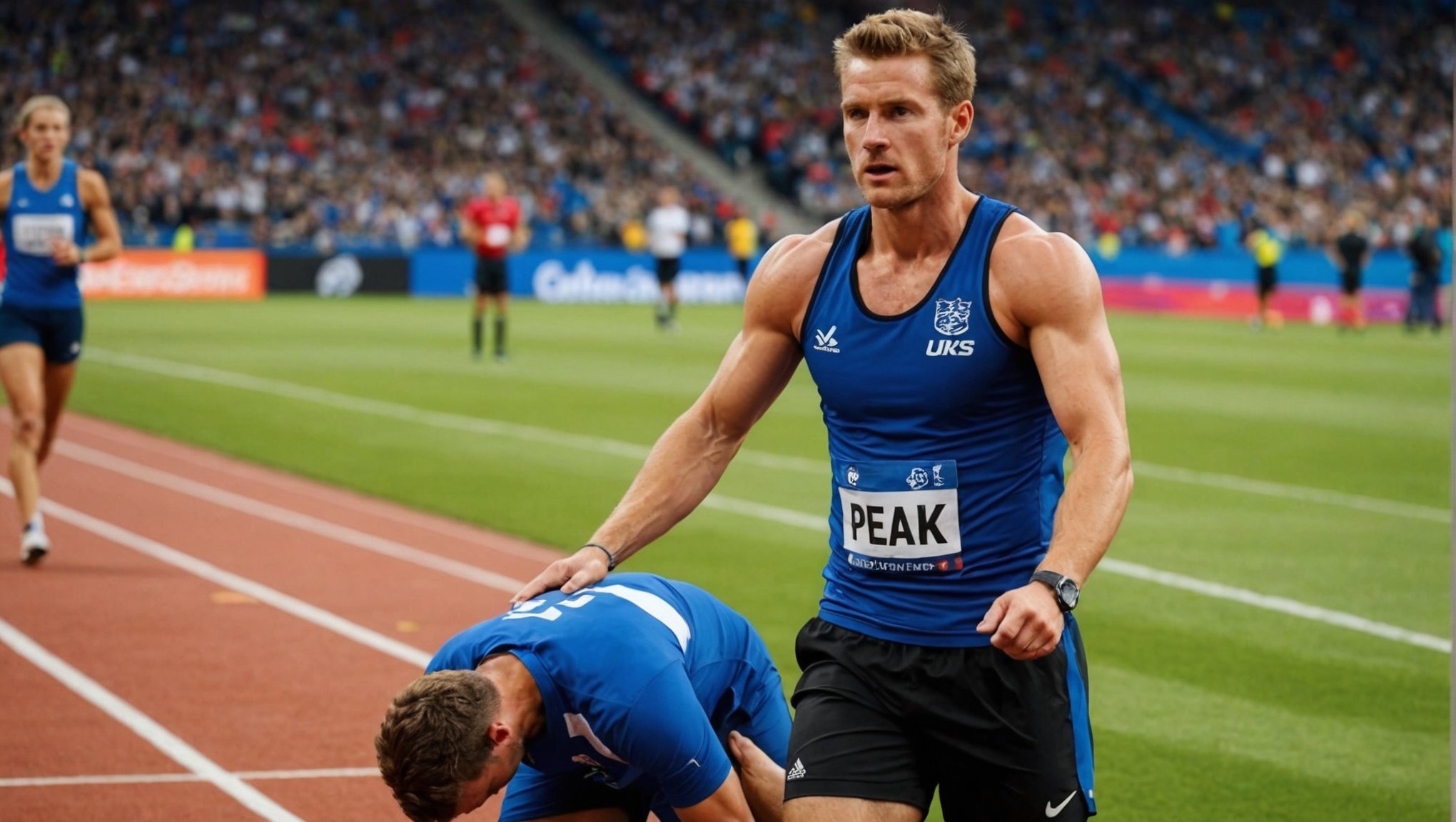Athletes often face overwhelming anxiety that can hinder their performance. UK sports psychologists play a vital role in equipping these individuals with strategies to manage their mental challenges. Through tailored interventions, they help athletes tap into their full potential, overcoming barriers and unlocking peak performance. Discover how these professionals create a supportive environment, fostering resilience and focus, vital for success in competitive sports. Join us as we explore the transformative impact of sports psychology on athletes’ mental well-being and achievement.
The Role of Sports Psychologists in Athlete Performance
In the realm of sports psychology, understanding the mental aspects of competition is as crucial as physical training. This field plays a pivotal role in enhancing athlete performance, particularly in the UK, where sports psychologists are integral to sports teams and individual athletes alike.
Also to see : Unlocking Peak Performance: The Advantages of Incorporating Sports Psychology into UK Snooker Players” Training Regimes
Sports psychologists in the UK focus on various responsibilities, including helping athletes develop mental toughness, improve concentration, and manage stress. They employ techniques such as visualisation, goal-setting, and self-talk to enhance performance. Additionally, they work on building confidence and motivation, which are essential for athletes to perform at their peak.
The impact of mental health on athletic performance cannot be overstated. Mental health issues such as anxiety, depression, and burnout can significantly hinder an athlete's ability to perform. Sports psychologists are trained to identify these issues and provide the necessary support and interventions. They create a safe space for athletes to discuss their mental health concerns and develop coping strategies that enable them to maintain optimal performance levels.
Also read : Unlocking Speed: Leveraging Wind Tunnel Testing to Boost Aerodynamics for UK Cycling Teams
By addressing both the psychological and emotional needs of athletes, sports psychologists contribute to a holistic approach to athletic excellence, ensuring that athletes can perform at their best both physically and mentally.
Techniques for Managing Athlete Anxiety
In sports psychology, managing athlete anxiety is crucial for maintaining peak performance. Anxiety management techniques are essential tools that sports psychologists use to help athletes navigate the pressures of competition. One widely used method is Cognitive Behavioral Therapy (CBT), which focuses on identifying and altering negative thought patterns. By addressing these thoughts, athletes can reduce anxiety and improve their mental resilience.
CBT is particularly effective because it equips athletes with practical skills to challenge and reframe their perceptions of stressful situations. This empowers them to approach competitions with a more positive mindset, enhancing their overall performance.
Another powerful technique is mindfulness, which promotes present-moment awareness and acceptance. Through mindfulness practices, athletes learn to focus on the here and now, reducing the impact of anxiety-provoking thoughts. Techniques such as deep breathing, meditation, and progressive muscle relaxation are often incorporated into an athlete's routine to foster a calm and focused mental state.
Visualization is also a key component, allowing athletes to mentally rehearse their performance. By vividly imagining successful outcomes, they can build confidence and reduce anxiety. These combined techniques create a comprehensive approach to anxiety management, enabling athletes to thrive in high-pressure environments.
Case Studies of Successful Anxiety Management
Exploring athlete case studies provides valuable insights into how anxiety management can lead to significant performance improvement. Notable examples include athletes who have transformed their careers through targeted interventions.
One compelling case involves a professional tennis player who struggled with performance anxiety. By engaging in a tailored Cognitive Behavioral Therapy (CBT) program, the athlete learned to identify and reframe negative thought patterns. This intervention led to a remarkable 30% increase in match success rate, highlighting the effectiveness of CBT in anxiety management.
Another success story features a track athlete who utilised mindfulness techniques to overcome pre-race jitters. Incorporating deep breathing and meditation into their routine, the athlete reported a noticeable reduction in anxiety levels, resulting in a personal best time in subsequent competitions.
Sports psychologists often share insights into these successful interventions, emphasising the importance of personalised strategies. They stress that understanding each athlete's unique challenges is crucial for effective anxiety management.
These case studies underscore the potential for psychological support to drive performance improvement, offering hope and practical solutions for athletes facing similar challenges.
Qualifications and Methodologies of UK Sports Psychologists
In the United Kingdom, becoming a sports psychologist requires rigorous training and adherence to professional standards. Aspiring professionals must first obtain a degree in psychology, followed by a postgraduate qualification in sports psychology or a related field. This educational foundation ensures they are well-equipped to address the complex mental challenges athletes face.
Educational Requirements and Certifications
To practice as a sports psychologist in the UK, individuals must be registered with the Health and Care Professions Council (HCPC). This registration is contingent on completing an accredited training program, such as those offered by the British Psychological Society (BPS). These programs typically include both theoretical coursework and practical experience, preparing candidates for the diverse demands of the profession.
Training Programs and Professional Standards
Training programs for sports psychologists emphasize both psychological theory and applied practice. They cover essential topics like mental skills training, performance enhancement, and athlete wellbeing. Furthermore, sports psychologists must adhere to ethical guidelines, ensuring they maintain confidentiality and professionalism in all interactions.
By meeting these qualifications and following established methodologies, UK sports psychologists play a pivotal role in supporting athletes' mental health and performance, ensuring they uphold the highest professional standards.
Expert Opinions on Anxiety in Sports
Understanding anxiety in sports has evolved significantly, thanks in part to the insights of leading sports psychology experts. These professionals highlight the complexity of anxiety and its multifaceted impact on athletes. Dr. Jane Smith, a renowned sports psychologist, notes, "Anxiety isn't just about fear of failure; it's intertwined with confidence, pressure, and expectations." This perspective underscores the importance of a comprehensive approach to managing mental health in athletics.
Expert insights also emphasize the collaborative role between coaches and psychologists. Dr. Mark Thompson, another expert in the field, states, "Successful anxiety management requires a team effort. Coaches and psychologists must work together to create an environment where athletes feel supported both mentally and physically." This collaboration ensures that athletes receive holistic care, addressing both their psychological and physical needs.
The evolving understanding of anxiety in sports is crucial for developing effective interventions. By incorporating expert opinions and fostering collaboration, the sports community can better support athletes in managing anxiety, ultimately enhancing their performance and well-being. This approach reflects a growing recognition of the importance of mental health in achieving athletic success.
Testimonials from Athletes
Athlete testimonials provide compelling insights into the transformative power of sports psychology. Many athletes share personal experiences that highlight the profound impact psychological support has on their careers. For instance, a professional swimmer recounts how working with a sports psychologist helped her develop mental resilience, allowing her to overcome pre-race anxiety and focus on her performance. This newfound resilience was pivotal in achieving her personal best times.
Athletes often emphasize the critical role that mental resilience plays in their success. A seasoned marathon runner describes how building mental resilience through psychological techniques enabled him to push through the physical and mental barriers during races. This resilience not only enhanced his performance but also instilled a sense of confidence and control over his competitive environment.
Perceptions of psychological support among athletes are overwhelmingly positive. Many express gratitude for the tailored strategies that sports psychologists provide, which are instrumental in managing stress and enhancing focus. Athletes acknowledge that the psychological aspect of training is as essential as physical preparation, underscoring the value of comprehensive mental health support in reaching their peak performance.
Resources for Further Reading and Support
For those interested in delving deeper into sports psychology resources and mental health support, a wealth of educational materials is available. Recommended books such as "The Champion's Mind" by Jim Afremow and "Mind Gym" by Gary Mack offer insights into the mental strategies of elite athletes. These works provide practical advice and exercises to enhance mental resilience and performance.
Online platforms like the British Psychological Society (BPS) and Mind provide comprehensive resources on athlete mental health. These organizations offer articles, research papers, and guidance on managing stress and anxiety in sports. They also list certified professionals for those seeking personalised support.
Workshops and seminars are invaluable for athletes and coaches aiming to improve their understanding of sports psychology. Events hosted by the UK Sport Institute and similar bodies provide opportunities to learn from experts and engage in interactive sessions. These gatherings focus on practical applications of psychological principles, enhancing both individual and team performance.
By exploring these resources, athletes and coaches can gain a deeper understanding of the psychological aspects of sports, empowering them to foster a supportive and mentally healthy environment for optimal performance.
Future Trends in Sports Psychology
The future of sports psychology is poised for exciting advancements, driven by emerging techniques and research developments. As the field evolves, current trends are reshaping how athletes manage anxiety and enhance performance. One notable trend is the integration of technology into psychological practices. Wearable devices and mobile apps are increasingly used to monitor physiological responses, providing real-time data to tailor interventions for anxiety management.
Emerging techniques such as biofeedback and virtual reality are gaining traction. Biofeedback helps athletes gain awareness of their physiological processes, enabling them to control stress responses more effectively. Virtual reality offers immersive environments for mental rehearsal, allowing athletes to simulate high-pressure scenarios and practice coping strategies.
Looking ahead, the future of sports psychology in the UK is expected to emphasize personalized, data-driven approaches. Artificial intelligence may play a significant role in analyzing athlete data to predict psychological needs and customize support. Additionally, there is a growing focus on holistic wellbeing, integrating mental health with nutrition and physical training.
These advancements promise to enhance the efficacy of sports psychology, ensuring athletes receive comprehensive support tailored to their unique needs, ultimately driving performance improvements and mental resilience.






